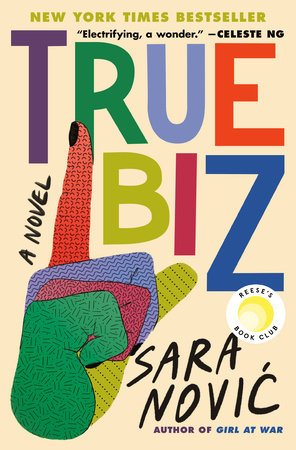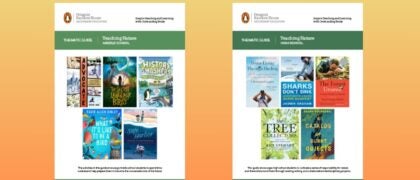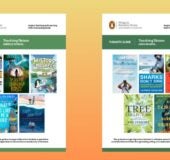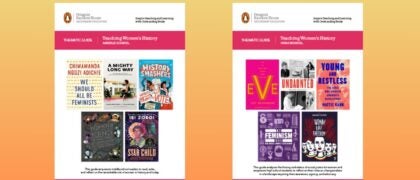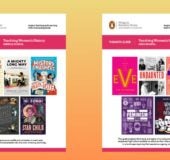Contributed by Sara Nović, author of True Biz: A Novel, a story of sign language and lip-reading, disability and civil rights, isolation and injustice, first love and loss, and, above all, great persistence, daring, and joy. Following the students at the River Valley School for the Deaf, it is an unforgettable journey into the Deaf community and a universal celebration of human connection.
I was one of the kids for whom English class was a refuge. Growing up nerdy and shy in an era when to try “too hard” was uncool and introversion was basically a personality flaw, you can see how books might appeal.
And that was before I went deaf.
I was in middle school when I began to lose my hearing, and it was as bad a time as you might imagine—a dramatic life change amidst a sea wave of other dramatic life changes for which I was ill-prepared. I spent most of the time trying to pretend it wasn’t happening, attempting to pass (or disappear) in the hearing world. I’d never met another deaf person before.
But English class was the place where everything still made sense. All I had to do was read the words on the page, words that never slipped from my grip the way spoken ones did. Books gave me so much during this weird and isolating time, before I found my community in the Deaf world and in ASL. Most of all, they gave me solace.
I was so fortunate to have teachers who made efforts to diversify their curriculum before the discussion was as spotlighted as it is today—teachers who assigned us books written by women and people of color, and fiction in translation. Who weren’t afraid to challenge us with difficult subject matter or poetics.
I caught glimpses of myself in Nella Larsen’s Passing as I tried to convince my peers that I was still “normal,” was fascinated by questions of history and activism in Tadeusz Konwicki’s A Minor Apocalypse. I loved most of the books we read just for their capacity to transport me the hell out of there. But I never saw myself in a character, never had that moment of validation that can be so powerful, a recognition of what I was going through as a deaf kid. I don’t remember reading any disabled characters at all.
The first deaf character I found was in graduate school, when we were assigned Carson McCullers’s The Heart is a Lonely Hunter. McCullers is a talent whose work has clearly endured for many readers, but let’s be honest: as representation goes, watching all the deaf characters go crazy and die was a tough way to start.
Which isn’t a knock against McCullers, necessarily. It is, though, a reminder that books can profoundly change the way we view the world and ourselves, and “representation” isn’t something we can just get from a single source and then check off our to-do list. It’s a process.
For a long time, it never occurred to me that I could be a writer beyond the privacy of the journals I filled and hid under my bed. Maybe as a first-gen college kid I had a limited understanding of what constituted a “career.” But maybe it would have occurred to me sooner if I had seen characters like me in books, or writers like me writing them.
How many artists have we lost this way? What can we expect of our disabled kids who never see themselves in books, except for them to learn that these things are not meant for them? In an education system that increasingly places value on students’ unique abilities and identities, disabled kids are still taught to pour all their energy into behaving, thinking, and looking typical, in exchange for the privilege of being “included.” But what may be good for an IEP or behavior management isn’t very good for creative thinking, the arts, or understanding one’s inherent value as a human being.
I’d love to see the conversation around diversity in our curriculum reframed to include authentic representations of disabled people, and especially those at the intersection of multiple marginalized identities. I hope one day deaf kids are come across a story that makes them think, “Hey, I could write a novel, too!” Maybe True Biz can be one of those books.
To all the humanities teachers out there—thanks for fighting the good fight in this harrowing time for the profession. And to my high school English teachers—thanks for saving my life.


